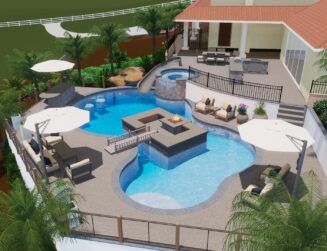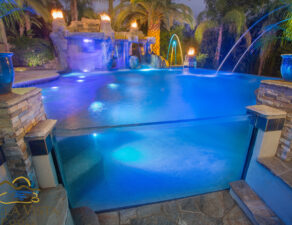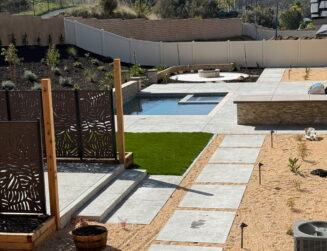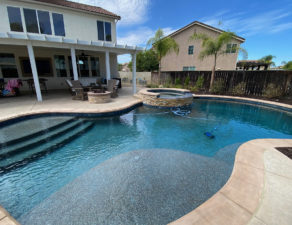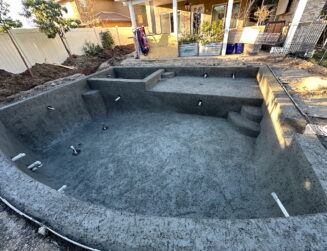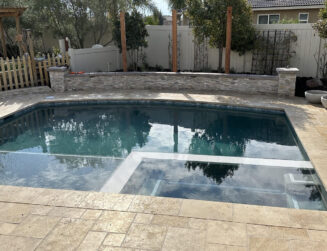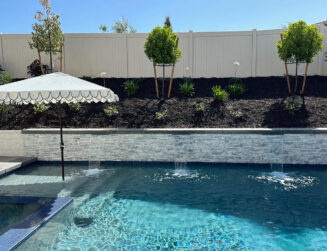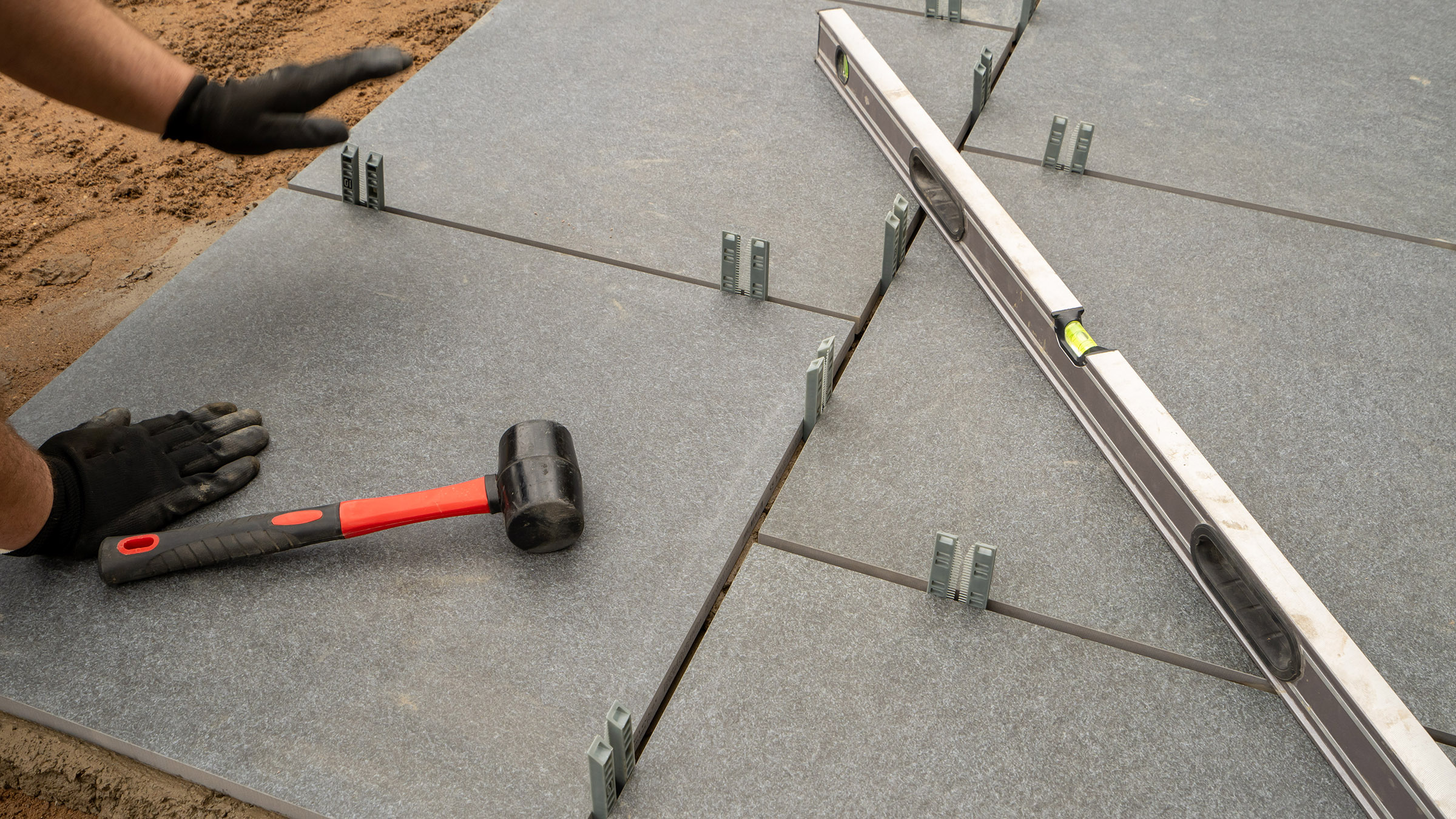
As you plan to create the perfect poolside oasis, the choice of pavers plays a crucial role in achieving both aesthetic appeal and practical functionality. Two popular options for pool decks are natural stone, such as travertine and limestone, and porcelain pavers. Let’s explore the benefits and drawbacks of each to help you make an informed decision.
Natural Stone Pavers
The benefits of natural stone pavers include:
Timeless Elegance. Natural stone pavers, particularly travertine and limestone, exude timeless elegance and charm. Their unique patterns and earthy tones can effortlessly complement various pool designs, creating a luxurious and inviting atmosphere.
Cool to the Touch. One significant advantage of natural stone is its ability to remain cool even under the scorching sun. This makes it a comfortable surface for bare feet, enhancing the overall poolside experience.
Durability. Well-maintained natural stone can withstand the test of time. It’s resistant to fading, and when sealed properly, it becomes less porous, reducing the risk of damage from pool chemicals and water exposure.
Of course, few materials are perfect for every situation. The drawbacks of natural stone pavers include:
Cost. The initial cost of natural stone pavers, particularly high-end varieties like travertine, can be higher compared to porcelain. This may impact the overall budget for your poolside project.
Maintenance. Natural stone requires periodic sealing to maintain its integrity. Additionally, it may be more susceptible to staining from oils, leaves, or other debris around the pool area.
Porcelain Pavers
The benefits of porcelain pavers include:
Versatility in Design. Porcelain pavers offer a wide range of design options, mimicking the appearance of natural stone, wood, or even concrete. This versatility allows homeowners to achieve the desired aesthetic without compromising on durability.
Low Maintenance. Porcelain is known for its low-maintenance characteristics. It is resistant to staining and fading and requires minimal sealing. This makes it an excellent choice for those seeking a hassle-free poolside surface.
Cost-Effective Options. While high-end porcelain can be comparable in price to natural stone, there are cost-effective options that still provide durability and aesthetic appeal.
Drawbacks of porcelain pavers include:
Temperature Sensitivity. Porcelain pavers may absorb and retain heat, potentially making them uncomfortable to walk on during hot summer days. Choosing lighter-colored porcelain can mitigate this issue to some extent.
Lack of Natural Variation. While porcelain can mimic the appearance of natural stone convincingly, some homeowners prefer the authenticity and uniqueness of genuine stone.
The choice between natural stone and porcelain pavers depends on your priorities and budget. If you value the timeless beauty of natural stone and are willing to invest in maintenance, it can be an excellent choice. Call us as you consider your swimming pool design, and we can help you explore the different options for creating the backyard pool of your dreams.

